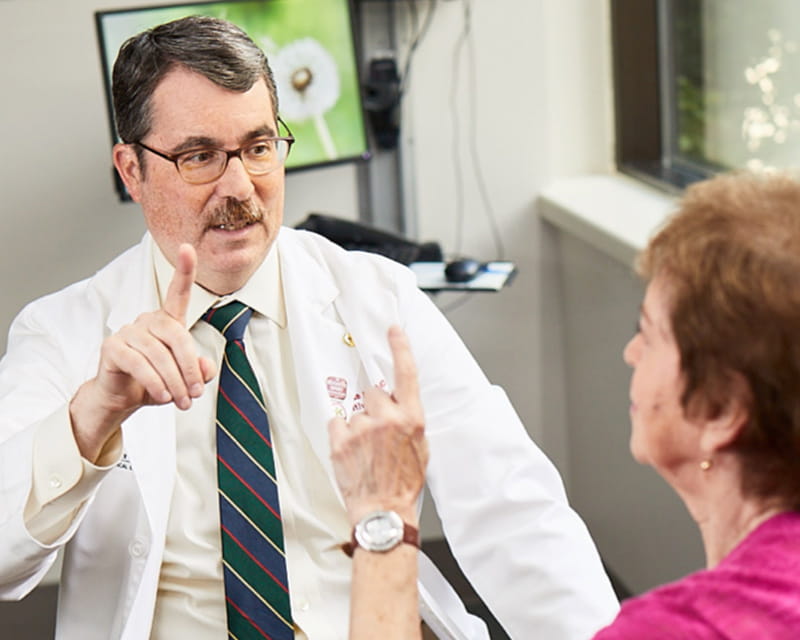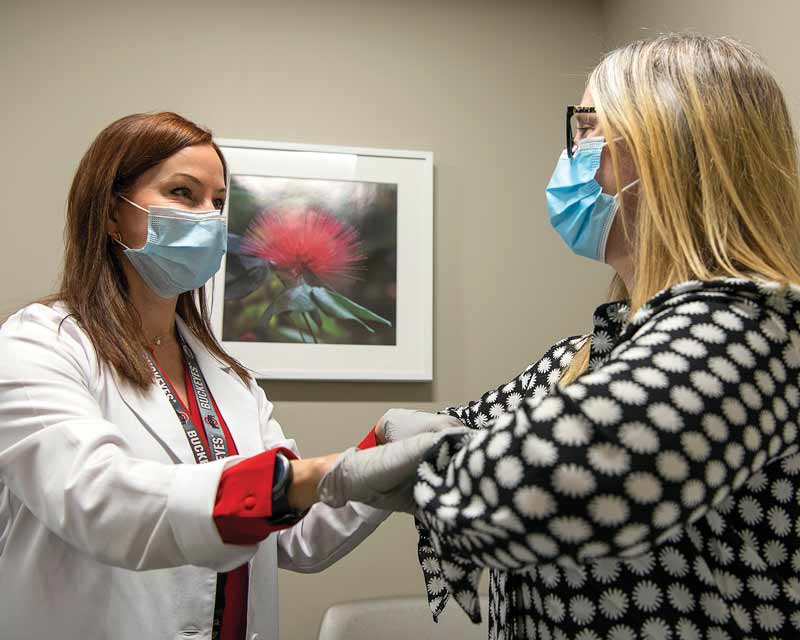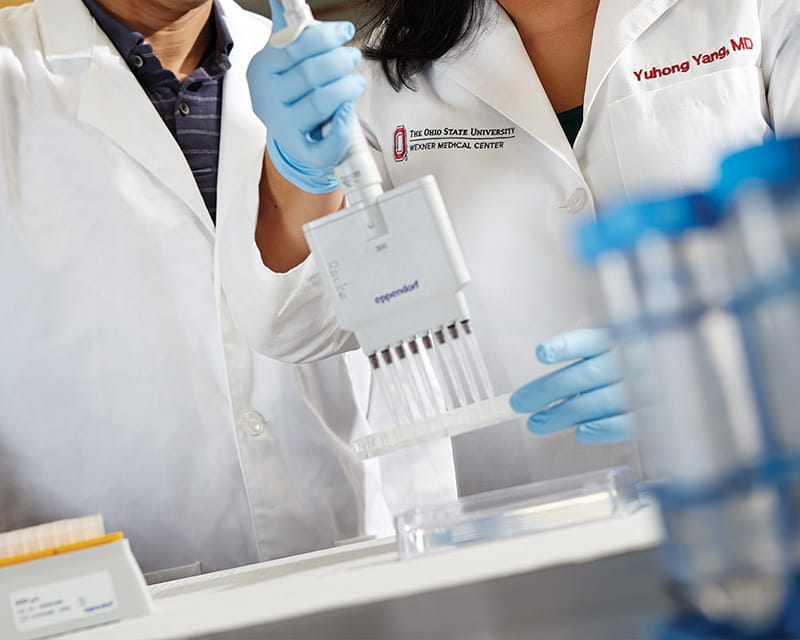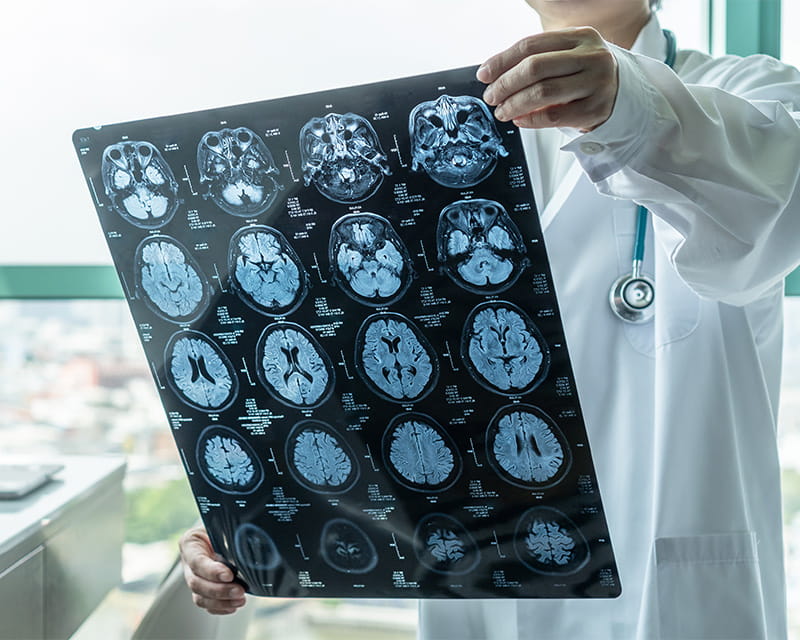
Ohio State researchers identify new biomarkers that differentiate Lewy body dementia from Alzheimer’s and Parkinson’s

After launching several new multidisciplinary clinics in 2021 — and preparing to open five more by the end of 2022 — The Ohio State University Wexner Medical Center now offers nearly 20 neurology specialty clinics that support unique patient populations with distinct needs.
These clinics make it possible for patients to see multiple specialists in a single visit, reducing travel to and from Columbus. They also give patients access to targeted interventions and research opportunities that aren’t widely available.
Some of the new clinics, featured below, also offer specialized therapies that can be hard for patients to access on their own.
Not only are stress, depression and anxiety common among people with neurological disease, but they can also trigger symptoms that mimic certain neurological disorders. To that end, the Ohio State Wexner Medical Center’s Department of Neurology offers three new clinics that integrate neurology care and psychotherapy:
This clinic helps patients whose tremors, involuntary muscle contractions and other symptoms are not caused by nervous system damage or degeneration. Those diagnosed with a functional movement disorder receive cognitive behavioral therapy and/or targeted trauma therapy from a clinical psychologist.
Patients learn to recognize and control their symptom triggers, and have access to concurrent rehabilitation and other therapies as needed.
The new PNEE clinic benefits people whose seizures are triggered by psychological events instead of abnormal electrical activity in the brain. In addition to helping patients understand their diagnosis, team members provide tailored, individual therapies.
“Many people with PNEE are still misdiagnosed as having epilepsy, which means they’re not getting the right treatments,” says epileptologist Sarita Maturu, DO, director of the Ohio State Wexner Medical Center’s neurology specialty clinics. “But in fact, roughly 20% of all patients who undergo inpatient video EEG monitoring are found to have PNEE. With this clinic, we can help more people get the psychiatric support they need to face any underlying stress or trauma, and reduce or prevent their seizures.”
Maturu says the department already plans to expand this clinic. In addition to starting a support group for patients with PNEE, the team aims to offer group therapy along with individual therapy.
Building off the success of its existing MS clinics, the department also launched an MS Psychotherapy Clinic. In this program, MS-trained neurologists team up with psychologists to treat patients whose chronic symptoms have led to anxiety, depression or other mood disorders.
Participants learn strategies for coping with their symptoms. They also receive evidence-based therapies best suited to their needs. These approaches include behavioral activation and acceptance and commitment therapy.
“This is just one of the clinics we’ve developed for people with neuroimmunology disorders like MS,” Maturu adds. “We recently opened a clinic for patients with neurosarcoidosis who need both neurology and pulmonary care. We’ve also created a Neuro-Rheumatology Clinic for people whose chronic inflammatory conditions cause neurological complications. Our neuroimmunologists work closely with rheumatologists to treat patients with neuro-psychiatric lupus, neurologic manifestation of Sjogren’s syndrome, vasculitis and other complex issues.”
Two additional clinics scheduled to go live in 2022 aim to help people with MS or Parkinson’s disease live well with their condition.
Now in its final planning stages, the MS Multidisciplinary Symptom Management Clinic will provide a comprehensive yet customized approach to MS care. It will start with a quality of life intake that helps providers understand where patients need the most help, then connects them to appropriate resources.
“We’re bringing together specialists in sleep medicine, pain medicine, rehabilitation, psychology, pharmacy and social work,” Maturu says. “No matter what a patient needs help with, whether it’s managing their medications, improving balance or reducing bladder dysfunction, we can refer them to an expert in that specific area.”
A new Parkinson’s Disease Multidisciplinary Clinic will offer a similar approach. This “one-stop shop” will make it easier for patients to get the care and advice they need, including rehabilitation services and psychological support.
Along with giving patients access to experts who can provide a deep dive into the complexities of their condition — and take the time to discuss individual symptoms or treatments — the Department of Neurology’s specialty clinics enhance enrollment in clinical studies such as new drug trials. They also ensure patients receive the most up-to-date care available.
“We believe in innovative and customized care. We want patients to feel like they have someone to turn to with concerns about any aspect of their condition, and we’re invested in continuously improving their outcomes,” Maturu says. “Most of our patients allow us to gather and track their clinical data so we can monitor outcomes over time and fine-tune our protocols as needed. And through these efforts, perhaps we’ll identify effective models of care that can eventually become standards of care.”

Ohio State researchers identify new biomarkers that differentiate Lewy body dementia from Alzheimer’s and Parkinson’s

Biomarker breakthroughs at Ohio State transform disease diagnosis, predictability and treatment

The Ohio State University Wexner Medical Center pushes boundaries for neurological care